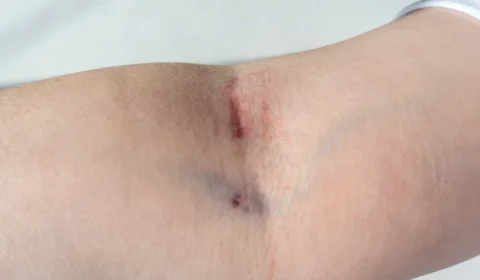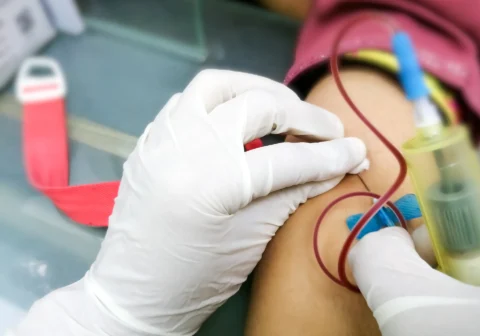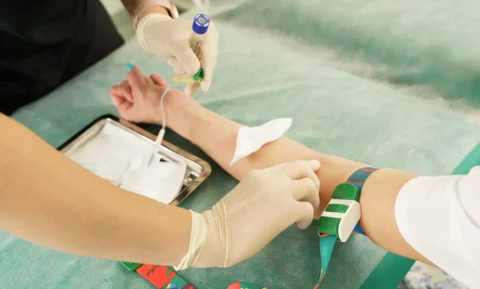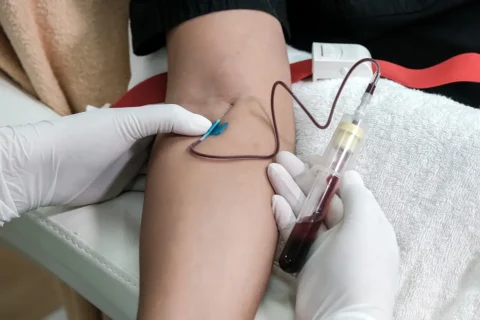Laser hair removal is one of the most popular cosmetic treatments today. It’s safe, non-invasive, and has long-lasting effects. Many wellness and health centers offer this procedure, with doctors and aestheticians usually at the helm. However, family nurse practitioners can also administer laser hair removal if they’re properly trained.
So where can family nurse practitioners receive laser hair removal training? There are various institutions, training centers, and medical providers that offer courses for aesthetics training. These courses cover the fundamentals of the procedure, while also allowing students to observe and practice in live settings.
Laser Training for Family Nurses
Family nurse practitioners (FNPs) are known for their expertise in primary and specialty care for people regardless of age. They’re often associated with preventive care, and serve families for long-term periods. They usually report to a family doctor that serves the same clients.
Some FNPs may choose to get certified in other fields, such as aesthetic treatments. If you’re an FNP interested in training for laser hair removal, you can get training from different institutions to branch out into cosmetic nursing.
Finding a Training Center
There are many training institutes across the United States that offer short courses for family nurses. Most of the courses cover multiple aesthetic procedures, such as laser hair removal, microneedling, PRP, and more. These are good options if you want to shift full-time into cosmetic nursing.
However, there are also courses specific only to laser treatments. Since these are meant for registered nurses, you’re expected to have a baseline knowledge of anatomy and physiology. Courses are usually split into lectures and in-person laboratory sessions.
Many centers offer hybrid courses, with the basic principles confined to self-study resources that can be accessed anytime. You have to meet deadlines for some tests and assessments during the course’s availability. Besides this, you must also attend in-person sessions that feature live demonstrations and assessments.
The live sessions allow you to observe certified laser technicians perform cosmetic procedures on real-life patients. These may be done in collaboration with hospitals or wellness clinics that offer laser hair removal to clients. At the end of each course, you’ll go through a series of assessments to test your practical knowledge. Upon passing and completing, you’ll receive a certificate proving that you acquired the necessary skills for administering laser hair removal.
Short Courses vs. Institutes
Besides the long-term courses offered by institutes, you can also pursue 1-day sessions facilitated by smaller training centers. These are similar to seminars and conferences, with a variety of speakers giving lectures to the audience. They also have demonstrations of procedures, and usually allow students to participate in practice sessions.
FNPs with previous accreditations in laser hair removal can undergo short courses to familiarize themselves with newer technologies. Short courses are easier to organize for centers, so they’re a good source for updated information. The invited lecturers also pool from their own experiences, which allows you to get a better idea of the current patient demographics.
However, one-day courses are not as comprehensive. You only have 6 to 8 hours to take in the information. Even with the leaflets or manuals distributed to attendees, there are still multiple aspects of laser treatment that you might miss.
If you’re looking to become a full-time laser technician, full-length courses give you more value for your money. It would help if you choose a course that has continuing medical education (CME) credits, which can boost your portfolio as a nurse.
Boot Camps
Boot camps are an alternative to courses. These are intensive seminars that occur once or twice a year. Bootcamps cover the latest developments in the cosmetic industry while also allowing professionals all over the country to socialize with each other. If you’re looking for a more personal approach to learning, boot camps are a great way to learn from others’ experiences.
Boot camps have open forums that tackle the recent issues that practitioners face. These aren’t always related to patients, but could also involve taxes, state laws, and regulatory approvals. Boot camps also invite pharmaceutical and technological companies to provide lectures or set up booths. These provide opportunities to experience using equipment that may not be available in your area.
The downside is that boot camps tend to be anecdotal and less formal than courses. It’s best to consider attending one if you’re already a certified technician. Some boot camps are also exclusive to nursing or medical organizations, so it helps to establish your network in the cosmetic industry first.
Helpful Resources
If you’ve already finished many courses and attended boot camps, you can still expand your knowledge through other resources. Some publishers release training manuals that get updated yearly. These focus on the latest techniques for lasers, as well as the most popular treatments for patients.
You can also do your research by browsing medical journals. Some helpful options include the Journal of Cosmetic and Laser Therapy and the Journal of the Dermatology Nurses’ Association. There are also webinars, talks, and lectures you can attend in your free time. It helps to follow hospitals or nursing associations online to stay updated on the schedule of these engagements.
Topics in Laser Hair Removal Training
Regardless of your training provider, most courses will cover very similar topics. The differences lie in the depth of the discussion and the extensiveness of the exercises. You can expect to learn about the science, procedures, and safety protocols for laser hair removal.
Laser Physics
The basics of laser hair removal are directly tied to physics. Most modules discuss this as a precursor to the procedural guidelines. Lasers are narrow light rays with only 1 wavelength. In laser hair reduction, these light beams target melanin to damage the hair follicles. Most courses will discuss the common laser types, such as long-pulse diodes, Alexandrites, and more.
Melanin in the hair absorbs the light rays and converts them to heat. This process causes the hair follicle to break down. Hair will eventually grow back at some point, but the strands will be fewer and thinner.
Intense Pulsed Light
Intense pulsed light (IPL) therapy is similar to laser treatments, since it also relies on the release of light into the hair follicles. However, IPL releases multiple wavelengths and is more scattered than laser light treatment. IPL is often taught in laser hair removal courses to differentiate them from one another. Additionally, some aesthetic courses bundle the basics of IPL therapy with laser courses.
Cellular and Tissue Interactions
As part of the basics, cellular and tissue interactions are also taught in laser courses. Some courses place these as subtopics to physics, although these are more in line with anatomy and physiology. These lessons allow you to better understand how the heat vaporizes the cells responsible for hair growth.
Understanding Client Care
You’ll deal with different types of people when administering treatment. Most laser hair removal courses will teach you how to formulate a treatment plan with your client. Subtopics include possible contraindications, different skin types, and common side effects.
Laser Safety Officer Training
An aesthetic nurse may also want to pursue the role of a safety officer. Laser safety officers manage laser programs and products in a medical spa or center. Their work is less concerned with the medical aspect, but more on the legal and technical side. Lessons about this topic involve safety protocols and equipment maintenance.
Licensing Guidelines for Hair Removal
Some states require laser professionals to be registered. Most operations are under the jurisdiction of a state cosmetology board. There are also some areas where a certification exam is required before you can get a license to operate.
State Laws
The licensing guidelines vary per state. For example, Arizona requires laser technicians to undergo 40 hours of classroom lessons and another 48 hours of extensive training. In Texas, you must have administered 100 successful laser operations before you can be certified. Laser procedures in New York can only be carried out by physicians — all other personnel must be supervised during treatments.
It helps to know the specific laws for your state before you take aesthetic medicine courses. If you need to take a separate exam to get a license, you can ask if the local cosmetology board offers refreshers or review materials. You can also look for a course made specifically for board exam takers.
FDA Approvals
Laser hair removal is approved by the Food and Drug Administration (FDA). Equipment used for all treatments must comply with the Federal Food, Drug, and Cosmetic Act (FFCDA). This law has clear stipulations regarding all medical equipment used for cosmetic treatments. Before you operate a laser machine, make sure you ask your supervisor about the risk compliance of the device.
Find the Best Beauty and Medical Training Courses at FACE Med Spa
Shifting careers from being a family nurse practitioner to a cosmetic nurse requires training and effort. You’ll get the best results if you study a course that caters to your needs, learning styles, and career goals. Make sure to choose one that has a set-up that’s accessible and convenient for you, whether online, in-person, or hybrid.
At FACE Med Store, we offer training courses for all aspiring aestheticians. We cover dermal filler injections, mesotherapy, thread lifts, skin science, and more. For a full list of our course offerings, you may browse our online shop. You can also contact us through email at info@facemedstore.com.






